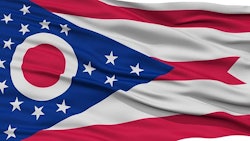
The Gen Z adult population is growing.
According to recent data from Statista, Gen Z—born between 1997 and 2010—made up about 20.4% of the U.S. population in 2020, falling shortly behind Millennials—born between 1981 and 1996—who made up roughly 21.9% of the population.
As the Gen Z population continues to rise, recent studies find that the generation may be an outlier amongst cannabis consumers, Cannabis Business Times previously reported.
RELATED: Understanding Gen Z's Cannabis Trends
So, how can cannabis companies better engage the Gen Z customer base?
Here, Andreas Neumann, chief creative director at Jushi Holdings Inc., a multistate operator and owner of cannabis retail, cultivation and processing licenses based in Boca Raton, Fla., explains brands can attract the growing generation, which he describes as "our future consumers."
Promote the Positive Impact of the Plant
A study released by the American Psychiatric Association in 2019 titled "Stress in America: Generation Z" found that Gen Z is more likely to report mental health concerns and receive treatment compared to other generations.
According to the study, only 45% of Gen Zers said that their mental health was “excellent or very good,” and 75% reported feeling stressed by issues in the national news. Other common stressors were work, money, economy or health-related concerns.
Perhaps smartphones and social media contribute to Gen Z's high levels of anxiety and stress, which both make world news and information easily accessible.
"With social media, [Gen Z] is snowed in," Neumann said. "There's so much information out there, so much competition, and so much noise. And I think in the future we will see a lot more people with anxiety and other medical issues where cannabis can really help."
Due to the rise in mental health issues amongst Gen Z, Neumann suggests companies educate the generation on how cannabis can positively impact people's lives and assist with some of those medical concerns.
And aside from the plant's medical uses, Neumann said it's also essential to focus on the benefits of recreational use.
"[It's important to] talk about the recreational impact, which could be of help in finding yourself as well," he said. "I think it's challenging for Gen Z [to find themselves] due to the amount of information, competition, jealousy and fast-moving paces of social media avalanches on them all day long, which can create a lot of issues. … and that's where I think this plant can help a lot.”
Understand Gen Z's Characteristics
It's no secret that Gen Z is growing up in a new world of cannabis.
The plant is becoming less stigmatized as more states continue to legalize it for medical or adult use.
"They're growing up in a time when they're watching cannabis become official and be considered beneficial," Jennifer McLaughlin, vice president of merchandising for cannabis operator Calyx Peak Companies, previously told Cannabis Dispensary. "The stigmas for these kids just won't be there. I see a big shift in knowledge at a younger age and a totally different attitude toward it."
Neumann agreed, as he said Gen Zers are growing up being taught about the beneficial uses of cannabis, which creates a causal relationship between the generation and the plant and makes them more open to trying it.
As previously reported by Cannabis Business Times, data from the Brightfield Group concluded that "In Q1 2021, 63% of Gen Z cannabis consumers said they use more cannabis than alcohol, and 19% say they never or rarely drink. Both numbers have increased year over year—in Q1 2020, 52% said they used more cannabis than alcohol and 14% reported never or rarely drinking."
And Neumann said he thinks the spike in cannabis use and the decrease in alcohol consumption among Gen Zers is because they are “looking for a more spiritual outlook and want to explore different dimensions.”
"I think they're much more advanced now in what they know and how they can educate themselves,” he said. “They can explore the world just online; they don't even have to go places. So, I think all that stuff makes them very aware, educated and looking for other levels of spirituality as well."
Emphasize Digital Marketing and Visual Content
While Gen Z is growing up in a new world of cannabis, the generation is also growing up in a predominately digital age.
The Pew Research Center described Gen Z as "digital natives who have little or no memory of the world as it existed before smartphones," making it essential for marketers to ensure they are creating a unified experience across in-store, digital and mobile platforms when targeting Gen Z.
"It's like second nature; the phone is always in your hand. So, that's the way to communicate with people," Neumann said. "We see in our research that even in online shopping, 85% of people look at our sites on the phone. So, the phone is it; it's not the computer or iPad; it's the phone. The phone is mobile, and it's everywhere."
Gen Z is also very visual, Neumann said, and he suggests companies use fewer words and more visual elements in their marketing efforts.
Provide a True Sense of Purpose
According to data from Pew Research Center, Gen Z is the most racially and ethnically diverse compared to other generations, and Neumann said he thinks it's essential for brands to consider that.
"I think this generation is very responsive, and it's very respectful to others," Neumann said. "They're very much aware of respect to diversity, different races and different ethnic groups. So, I think you have to be super respectful, diverse and open-minded in your communication."
While it's one thing for brands to implement diverse marketing and messaging into their strategy, it must be authentic, as Gen Z is not easily swayed.
"It has to be real," Neumann said. "If it's not real, this generation will read right through it."
For example, Jushi incorporated rainbow colors and LGBTQ messaging into its brand during pride month to celebrate the LGBTQ community. Those efforts still hold strong to this day, well after pride month happened.
"It's not just like, 'Hey, I know it's pride month, here are colors,' and then the next day it's off," he said. "There are little things we do because it just feels right. It feels good when I see it, and that's why we do it. We do things because we believe in it, and I think that's how you have to communicate with this generation."


























